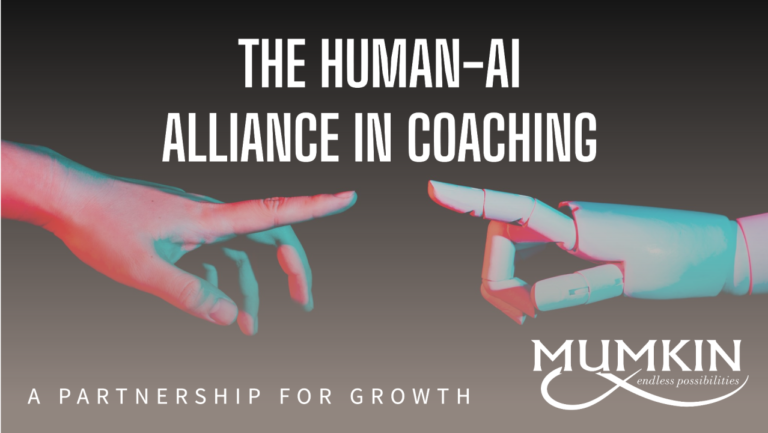
As coaches, we thrive on unlocking human potential—helping individuals and teams achieve clarity, growth, and transformation. But in today’s fast-paced world, technology, particularly artificial intelligence (AI), is reshaping how we deliver this value. The question is not whether AI will replace us but how it can complement and amplify our work as coaches.
Enhancing the Coaching Process
AI serves as a powerful ally, enriching the coaching experience in ways we couldn’t have imagined just a decade ago. From generating insightful data to streamlining administrative tasks, AI allows us to focus on what truly matters—human connection. For instance, imagine leveraging AI tools to:
- Personalize Assessments: Advanced algorithms analyze client behaviors, preferences, and goals to craft tailored development plans.
- Track Progress in Real Time: AI-driven platforms provide dynamic updates on client performance, enabling us to adapt strategies quickly.
- Uncover Hidden Patterns: AI can detect trends in feedback or behaviors that may not be immediately apparent to the coach or client.
These capabilities empower us to elevate the coaching process, ensuring every session is impactful and aligned with the client’s unique journey.
Real-World Applications of AI in Coaching
AI isn’t just theoretical—it’s already changing the way coaching operates. Here are some practical examples:
- Chatbots for Self-Reflection: Tools like AI-driven journaling prompts help clients reflect between sessions, fostering deeper insights.
- AI-Based Session Notes: Platforms automatically generate summaries and action points, freeing up time for coaches to focus on strategy.
- Virtual Reality (VR) Simulations: For leadership development, VR scenarios combined with AI feedback offer immersive learning experiences.
The possibilities are endless, but they’re not a replacement for the core coaching competencies we bring to the table.
Ethical Considerations: Keeping Coaching Human
While AI opens exciting doors, it also raises important ethical questions:
- Confidentiality: How do we ensure client data remains private and secure?
- Bias in Algorithms: Are AI tools equitable, or do they perpetuate biases that could harm the coaching relationship?
- Over-Reliance on Technology: How do we ensure the essence of coaching—empathy, intuition, and connection—isn’t diluted by automation?
As we integrate AI into our practices, adhering to coaching ethics and maintaining our humanity is critical.
Your Perspective Matters
As the coaching industry evolves, so must we. AI is here to stay, and it’s up to us to shape how it complements our work. But this is a journey we must take together.
How do you see AI enhancing your coaching practice? Share your thoughts, experiences, or concerns in the comments. Let’s collaborate to ensure that the future of coaching is both innovative and deeply human.
